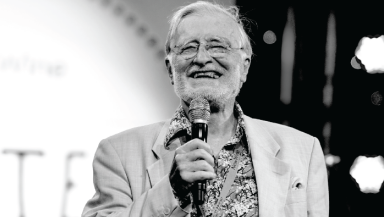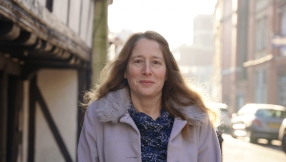
It's a sad fact that over the last few years we have been steadily saying goodbye to a whole generation of church leaders who, having come to faith as young men and women, steered and shaped the evangelical church in the turbulent last decades of the twentieth century. The most recent of these figures is David Pytches. With his passing to glory, the church has lost a great man.
David was a remarkable man with a remarkable ministry. Born in 1931, he was ordained in 1955 and, after two curacies, in 1959 he and his wife Mary became missionaries in Chile. In South America he learned that God could be trusted, that ministry involved taking risks and – perhaps most significantly – that he could embrace the Spirit-filled Christian faith that he found in the Pentecostals about him and still be a 'good Anglican'.
In 1972 he was appointed Bishop of Chile, Bolivia and Peru, a grand title that disguised a demanding responsibility and ministry. David returned to the UK with his family in 1977, but although he left South America, it can be said that it never really left him. David retained the missionary vision and he was always aware that the breadth and richness of God's church could not be contained within a particular strand of a denomination.
In thinking about David, I found myself compiling a long list of his many virtues. From these let me choose just four which I think were particularly striking.
First and undoubtedly foremost, David was a man of godly integrity. In all the many roles, projects and initiatives that David was involved in, his faith in God was at the heart of all he did. He was not simply someone who held to a correct theology and respected a particular church tradition; he was, rather, a man who sought God with all that he was. That longing to experience God better led him to St Andrew's Chorleywood which became one of the most important centres for Spirit-filled Anglicanism in the UK and a place of enormous influence for many people including church leaders.
Out of that deep integrity came a godly independence. Despite his role as bishop, David was never an establishment figure; indeed, sections of the 'church establishment' found him profoundly uncomfortable. We need to remember that half a century ago, the sort of open hunger that David had to see the renewing and transforming work of the Holy Spirit in operation was widely seen as, at best, a disturbing distraction and, at worst, a regrettable import from Pentecostalism.
The fact that he was frequently frowned on never bothered David: he called his autobiography Living at the Edge and, whether in Chile or Chorleywood, the edge is where he saw himself. He took his bearings from God and his Word, and I wouldn't be surprised if in another time and place he might not have joined 'the noble army of martyrs'.
Another virtue that David had was a godly initiative. For a man who believed in waiting on God, David never stood still. He visited, he encouraged, he invited, he supported: he did things. In any discussion of the truly significant events in the British church in the 80s and 90s the name of David Pytches frequently occurs. He brought John Wimber over and in doing so helped bring charismatic Christianity from the fringe towards the mainstream. He helped set up New Wine, an event that has both bred and nurtured many Christian leaders.
Many other people found encouragement and guidance in the way that St Andrew's modelled how a charismatic fellowship can operate. Indeed, many of David's emphases found their way into Holy Trinity Brompton and Alpha. David sowed good seed and it has born good fruit all over the world.
Ultimately, David was a God-given inspiration. He was a man who got alongside you; a man who cared for you, encouraged you and challenged you. He was a man who saw the possibilities, not the problems. To go to David with a difficulty almost inevitably resulted in you coming away with renewed hope and joy.
The ending of David's earthly life is not simply a matter for regret; it's one of challenge. This side of the Second Coming the church will always need people like him. We should pray for men and women who will serve God's people in a similar way today.
Canon J.John is the Director of Philo Trust. Visit his website at www.canonjjohn.com or follow him on Facebook, Instagram or Twitter.













